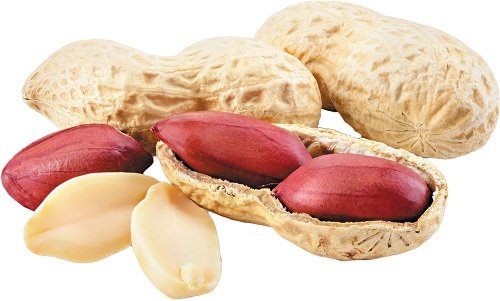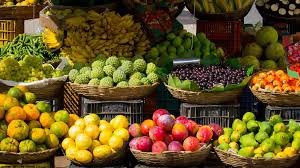Nutrition
Health benefits of Peanut

• Peanut
Peanuts are delectably crispy, nutty, and delicious. The kernels are rich in numerous noteworthy nutrients that are beneficial to health and overall wellness.
These tasty nuts can be a healthy addition to diet as they are rich in beneficial minerals, vitamins, and plant compounds.Most people take it at snacks.Peanuts are nutritionally dense and healthy.
– Promote healthy heart
Eating peanuts helps protect the body against coronary heart disease (CHD). A study conducted by the Harvard School of Public Health found that peanuts lower bad cholesterol (LDL) levels.
-Aids weight Loss
Peanuts are very high in calories, but they contribute to weight loss instead of weight gain. Peanuts are energy-dense foods. That is why having them as a snack may make you consume fewer calories later in the day. Peanuts elicited stronger feelings of fullness when consumed as a snack than with a meal. This may eventually help with weight loss.
-Prevents gallstones
Consumption of peanuts is linked to a lower risk of gallstones. A study conducted by the Harvard Medical School and Brigham and Women’s Hospital (Boston) found that consumption of peanuts lowers the risk of gallstones. Men consuming five or more units of nuts (including peanuts) a week are at a lower risk of gallstone disease.
– Aids blood sugar control
Adding peanuts or peanut butter to a meal does not spike blood sugar levels. Having them along with a meal would stabilise blood sugar levels.
-Reduces cancer risk
High intake of peanuts (including other nuts) has been associated with a reduced risk of colorectal cancer. The isoflavones, resveratrol, and phenolic acid found in peanuts have anticancer properties which may help reduce the risk of cancer
-Treat erectile dysfunction
Peanuts are rich in arginine, which is an essential amino acid (Arginine has been studied extensively as a possible treatment for erectile dysfunction.
-Boosts energy
Peanuts are a rich source of protein and fibre that assists in the conversion of carbohydrates into energy. The protein content of peanuts is around 25 per cent of the total calories. The fibre and protein combination in peanuts slows down the digestive process to facilitate a steady release of energy into the body.
-Have antioxidative properties
Peanuts are rich in numerous plant compounds and antioxidants. Most of these compounds are available in the skin of peanuts, which should be eaten raw to get all of its benefits. Some of the plant compounds that are readily available in peanuts include resveratrol, coumaric acid, and phytosterols that help impair the absorption of cholesterol, isoflavones, and phytic acid found in plant seeds.
Source: Health.com
Nutrition
The First 1,000 Days: Why Ghana’s investment in maternal and child nutrition matters for human capital development

From the start of pregnancy to a child’s second birthday, the first 1,000 days, represents the most important window for human development. Good nutrition shapes the foundation.
During this short window, the body and brain grow at a pace that will never be repeated. When nutrition is inadequate, the damage to physical growth and cognitive development is often permanent. No later investment in education or healthcare can fully reverse these losses. Ghana’s future workforce and economic progress depend on getting nutrition right during this critical period.
Science is clear. A baby’s brain develops rapidly during pregnancy and early childhood, forming the foundation for all future learning and health. Adequate nutrients during pregnancy support the formation of neural connections that underpin learning, memory, and emotional regulation. When pregnant women lack essential nutrients, their babies begin life at a disadvantage. When young children experience severe malnutrition, they miss critical growth periods that do not return.
Ghana faces serious challenges during this critical window. An estimated 68,517 children suffer from severe acute malnutrition. Between 37 and 63 percent of pregnant women are anemic, with iron deficiency particularly common in late pregnancy. These problems translate directly into diminished potential. Malnourished children perform worse in school, earn less as adults, and face higher risks of chronic diseases. The economic losses multiply across generations.
Research worldwide shows that nutrition investments during the first 1,000 days deliver exceptional returns. Well-nourished children learn better, perform better academically, and become more productive adults. Countries that invest in early nutrition experience faster economic growth through stronger, more productive workforces.
Ghana already has effective solutions. Multiple Micronutrient Supplements for pregnant women reduce the risk of low birth weight and preterm birth, while Ready-to-Use Therapeutic Food enables high recovery rates for children with severe acute malnutrition. Both are approved in Ghana’s health guidelines. The problem is not lack of knowledge but lack of access. Coverage remains limited because financing depends heavily on donor support rather than sustainable domestic systems.
Integrating these nutrition interventions into the National Health Insurance Scheme would help close this gap. With a large proportion of mothers and young children already enrolled, NHIS provides a platform for nationwide reach. Recent reforms to health financing further strengthen the case for prioritising essential nutrition services within the scheme.
Ghana’s development agenda emphasizes industrialisation, innovation, and economic transformation. Achieving these goals requires a workforce capable of learning, problem-solving, and sustained productivity. Human capital development, however, does not begin at universities or training centers. It begins before birth.
The first 1,000 days offer no second chances. Each year of delay means another group of children enter adulthood carrying preventable disadvantages. Investing in nutrition during this critical window is not only a health priority; it is a foundational investment in Ghana’s economic future.
Feature article by Womec, Media and Change under its Nourish Ghana: Advocating for Increased Leadership to Combat Malnutrition project
Join our WhatsApp Channel now!
https://whatsapp.com/channel/0029VbBElzjInlqHhl1aTU27

Nutrition
Importance of Fruits During Ramadan

Ramadan, the ninth month of the Islamic lunar (Hijri) calendar, is a period of fasting, reflection, and spiritual growth. A vital part of observing Ramadan is Iftar—the evening meal with which Muslims break their daily fast at sunset. Fruits play an essential role in Iftar, providing nutrition, hydration, and energy after long hours of fasting.
Here are some of the most recommended fruits to include in your Ramadan meals:
Dates
Dates are traditionally used to break the fast. They are rich in sugar, fibre, potassium, vitamins, and minerals, helping to restore energy quickly after fasting.
Watermelon
Watermelon is highly consumed for hydration, as it is composed mostly of water. It can be enjoyed in slices or blended into refreshing smoothies.
Bananas
Bananas are an excellent source of potassium, which helps maintain fluid balance and reduce thirst. They also provide natural energy to keep you going after fasting.
Apples
Apples are fibre-rich and nutritious, promoting heart health, aiding weight management, and improving digestion.
Cucumber
Cucumber is one of the best hydrating fruits, composed of water and fibre, which aids digestion while revitalising the body.
Pawpaw (Papaya)
Pawpaw is low in calories and sugar, rich in fibre, and promotes healthy digestion, hair, and skin. It is a nutritious addition to any Iftar meal.
Including a variety of these fruits during Ramadan not only helps replenish lost nutrients but also supports overall health, digestion, and hydration throughout the fasting period.
By Linda Abrefi Wadie
Join our WhatsApp Channel now!
https://whatsapp.com/channel/0029VbBElzjInlqHhl1aTU27


 News1 week ago
News1 week agoFinance Minister outlines new gold policies to boost reserves and curb smuggling

 News1 week ago
News1 week agoSam George launches the 2026 Meteorological Awareness Month; presents the 2026 seasonal forecast for southern Ghana

 Hot!1 week ago
Hot!1 week agoBreaking: Footballer who killed two children in Abesim handed lifetime sentence






